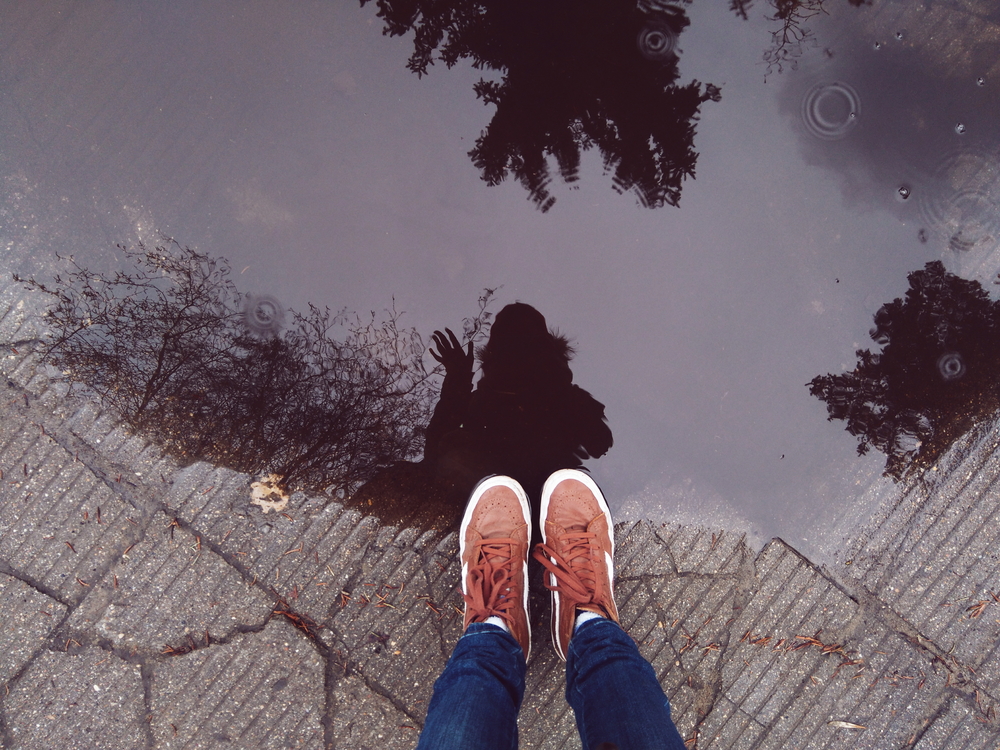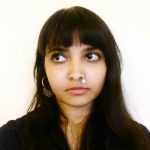
by Nazia Islam – Follow @naziaislam_
Search for the
root to the vine
of your own birth,
Lalan says,
There you’ll meet the Lord.
-Lalon Geeti no. 160
I have written Ramadan reflections before based on what I expected people wanted me to say. Narrative and personal storytelling is a wonderful art form but it can also be a destructive one without thoughtful guidance. It can be like being pushed into the water without knowing how to swim–you will either learn to keep yourself afloat or drown.
I am not writing a “Ramadan Reflection.” No, I have done that many times already. Letting words carelessly slip through the teeth of my mind for validation and acceptance for the sake of shallow forms of representations which many benefit from but myself. I am not a puppet for other people’s virtuous act of diversity or inclusiveness in the limelight only to be recognized or validated if I follow their agendas or ideas.
[Read More: “Am I Muslim Enough For You?“]
I drowned in the stories I created for others. Those stories were far removed from myself and the symbols and lore I inherited, absorbed, carried, and created in my heart from my experiences. I defined the beauty of prayer according to other people’s rubrics.
I don’t always find beauty or power in prayer. I had to stop praying to understand what it means to me or how it works for me. I’d be lying if I said I tried my best to keep up with the prescribed prayers, but I don’t. I don’t want to do it out of fear or to prove my beliefs to anyone. But when I do find myself in prayer, it is one of the few times I allow myself to be ultimately vulnerable and fragile without feeling like I am being judged. Something I don’t let myself be in most instances. I tell myself it is okay to feel contradictory feelings simultaneously like the time I prayed beneath the moonlight–soft reflection of light from the sun, stars, the earth, and maybe elsewhere like passing angel wings– in the dark.
I think I overuse the word “heart” as a literary device, but I can’t help it. I believe it is the epicenter of everything–destruction from the quakes of existence constantly adjusting itself to the shapes of its new terrains to its ability to be so bitter to be so full of love. Shiva sitting on a quiet mountain in my heart knows how many times he has danced the Tandava—the dance of destruction and recreation. It’s taken me a very long time to unearth the fragments of tales lost within my heart. To gather together the debris of the past. To adorn myself with its remnant dust and ashes.
I was not able to write my narratives because I thought I did not have enough knowledge about my background or that it would be wrong if it didn’t fit the general imagination if it. The truth is I did have the knowledge I was just too afraid of being out of line. I have to invoke my 11-year-old self, who has a better grasp of knowing myself, every now and then to get out of this constant self-doubting or the opposite of it–lots of ego to make up for the doubting insecurities.
[Read More: “The Travel Ban Isn’t New: America’s History of Restrictive Immigrant Legislation – Part I“]
After my moments of drowning and barely keeping afloat in the stories, I guess I can now say I can walk on them like water with an occasional plunge here and there.
 Nazia Islam is a writer and artist from California finishing her master’s degree in religion. She is a Bengali folk culture enthusiast and focuses her research in the subject area. She enjoys learning about Baul philosophy and connecting with her complicated religious ancestry through folklore she has inherited.
Nazia Islam is a writer and artist from California finishing her master’s degree in religion. She is a Bengali folk culture enthusiast and focuses her research in the subject area. She enjoys learning about Baul philosophy and connecting with her complicated religious ancestry through folklore she has inherited.




